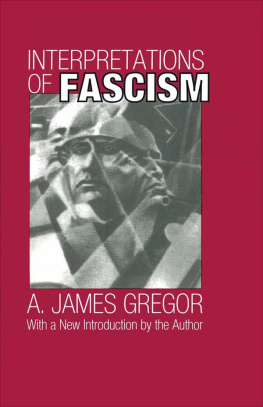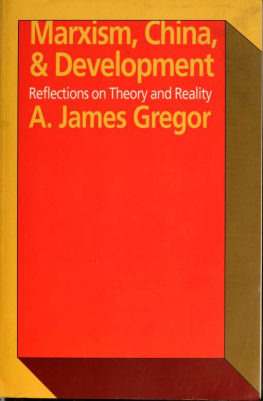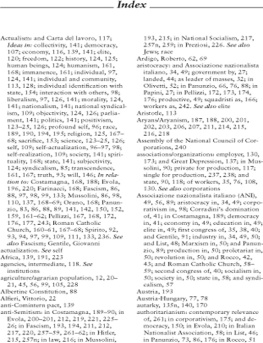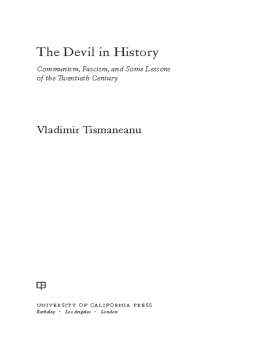1. INTRODUCTION
One of the more recent examples of this is found in R. J. B. Bosworth, Mussolinis Italy: Life Under the Fascist Dictatorship (New York: Penguin Press, 2006). Capitalized, Fascism will refer to the Fascism of Mussolini. A lowercase fascism refers to a generic fascism that includes an indeterminate membership.
See, for example, Martin Pabst, Staatsterrorismus: Theorie und Praxis kommunistischer Herrschaft (Stuttgart: Leopold Stocker Verlag, 1997), chap. 2.
See the discussion in A. James Gregor, Interpretations of Fascism (New Brunswick, N.J.: Transaction Press, 2000), chaps. 2 and 3.
See Herbert W. Schneider, Making the Fascist State (New York: Oxford Press, 1928); William G. Welk, Fascist Economic Policy (Cambridge, Mass.: Harvard University Press, 1938), p. 243.
Angelo Del Boca and Mario Giovana, Fascism Today: A World Survey (New York: Pantheon Books, 1969), p. 145. See the discussion concerning de Gaulle on pages 170173, 181185, 191207.
Max Horkheimer, as quoted in Franois Furet, The Passing of an Illusion: The Idea of Communism in the Twentieth Century (Chicago: University of Chicago Press, 1999), p. 368.
Rajani Palme Dutt, Fascism and Social Revolution: A Study of the Economics and Politics of the Extreme Stages of Capitalism in Decay (San Francisco: Proletarian Publishers, 1974; a reprint of the 1934 edition), pp. 16, 17.
See the account in F. Burlatsky, The State and Communism (Moscow: Progress Publishers, n.d.).
See the discussion in A. James Gregor, The Faces of Janus: Marxism and Fascism in the Twentieth Century (New Haven: Yale University Press, 2000), chap. 5.
Anatoly Butenko, To Avoid Mistakes in the Future, The Stalin Phenomenon (Moscow: Novosti Press Agency, 1988), p. 8.
Gavriil Popov, From an Economists Point of View, and Dmitry Volkogonov, The Stalin Phenomenon, ibid ., pp. 12, 41, 43.
Volkogonov, The Stalin Phenomenon, ibid ., pp. 48, 49.
Boris Bolotin, Dogma and Life, ibid ., pp. 3031.
See the interesting discussion of the responses made by some of the intellectuals challenged by developments in the Soviet Union in Paul Hollander, The End of Commitment: Intellectuals, Revolutionaries, and Political Morality (Chicago: Ivan R. Dee, 2006).
See Mark Neocleous, Fascism (Minneapolis: University of Minnesota Press, 1997).
See the postmortem account in Peter Sperlich, Rotten Foundations: The Conceptual Basis of the Marxist-Leninist Regimes of East Germany and Other Countries of the Soviet Bloc (London: Praeger, 2002) and Oppression and Scarcity: The History and Institutional Structure of the Marxist-Leninist Government of East Germany and Some Perspectives on Life in a Socialist System (London: Praeger, 2006).
See the entire discussion in Furet, The Passing of an Illusion , chaps. 1011.
See the discussion in Gregor, Interpretations of Fascism , chap. 5.
The classic statement of this notion is found in Georgi Dimitroff, The United Front Against War and Fascism: Report to the Seventh World Congress of the Communist International, 1935 (New York: Gamma Publishing, 1974; reprint of the 1934 edition). The editor, Jack Shulman, insists that Dimitroffs analysis was relevant to the United States of the period; see ibid ., pp. 35.
See the more ample discussion in A. James Gregor, A Place in the Sun: Marxism and Fascism in Chinas Long Revolution (Boulder, Colo.: Westview Press, 2000), pp. 106107.
Maoists in the United States and Britain put together elaborate accounts of how the Soviets had abandoned Marxism in order to restore capitalism to what had been a socialist society. See, for example, How Capitalism has been Restored in the Soviet Union and What this Means for the World Struggle (Chicago: Revolutionary Union, 1974).
See the discussion in Gregor, The Faces of Janus , chap. 4.
See one of the most recent efforts, Robert O. Paxton, The Anatomy of Fascism (New York: Alfred A. Knopf, 2004), particularly chap. 8.
One finds just these sorts of judgments in the 1990 Report of the European Parliaments Committee of Inquiry into Racism and Xenophobia, in Fascist Europe: The Rise of Racism and Xenophobia (London: Pluto Press, 1991). See also A. James Gregor, The Search for Neofascism: The Use and Abuse of Social Science (New York: Cambridge University Press, 2006), chaps. 13.
This is not to say that there have not been authors who see the relationship between the various forms of Marxism and one or another form of fascism. See A. James Gregor, The Fascist Persuasion in Radical Politics (Princeton: Princeton University Press, 1974).
Dave Renton, Fascism : Theory and Practice (London: Pluto Press, 1999), pp. 3, 116.
As early as 1918, Giovanni Gentile wrote that in the best governed communities, the will of a people is the same as the will of he who governsand the will of he who governs is the will of those governed. Giovanni Gentile, Il significato della vittoria, Dopo la vittoria: Nuovi frammenti politici (Rome: La Voce, 1920), p. 8.
See Gentiles discussion in Discorsi di religione (Florence: Sansoni, 1955; third edition of the edition of 1920), particularly pp. 2023. The individual has within himself, societyhe forges within himself a sociality, a society immanent within him. Gentile, Preliminari allo studio del fanciullo (Florence: Sansoni, 1920), p. 55.
















